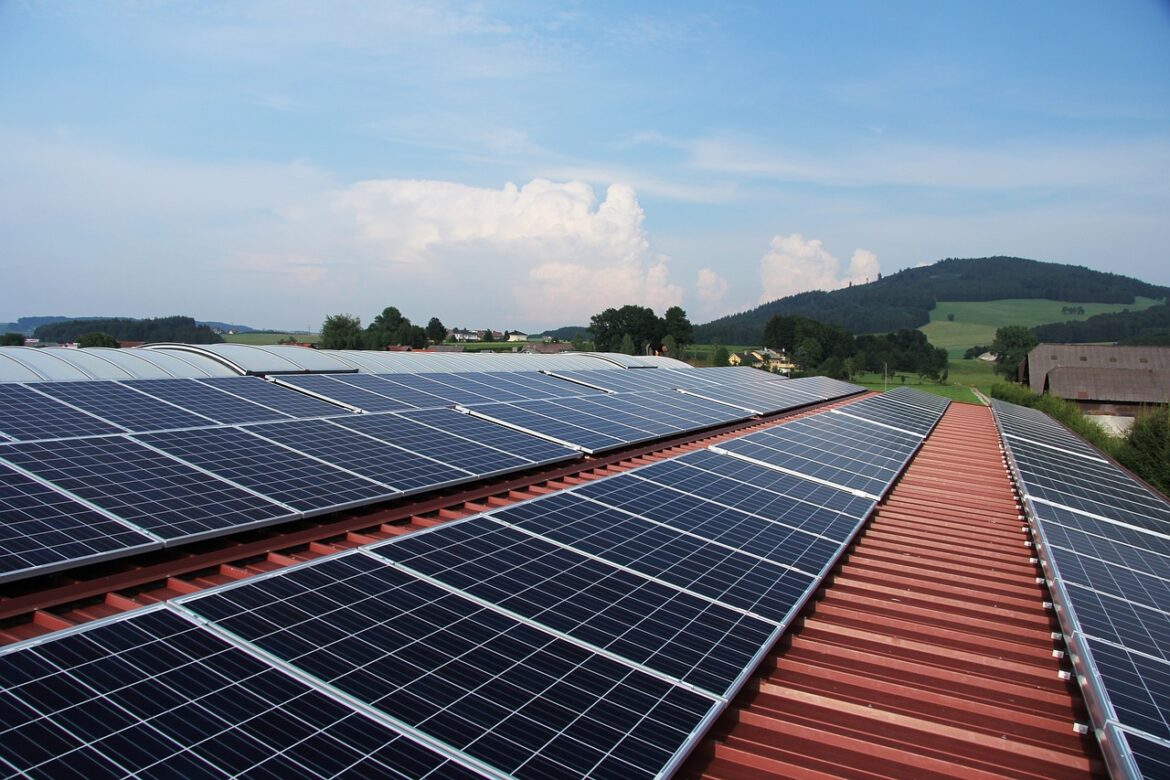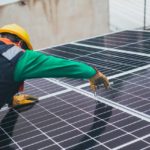In recent years, the world has witnessed a remarkable shift towards sustainable and eco-friendly energy sources. Among these, solar power has emerged as a frontrunner, promising not only a cleaner future but also transforming the way we generate and consume energy. In this blog post, we will explore the solar advantage — how solar panels are shaping our world, revolutionising the energy landscape, and contributing to a more sustainable future.
The Basics of Solar Energy
At the heart of solar power lies the ability to harness the energy emitted by the sun. Solar panels, made up of photovoltaic (PV) cells, are the key players in this process. When sunlight strikes these cells, it generates a flow of electricity, a phenomenon known as the photovoltaic effect. This electricity can then be used to power homes, businesses, and even entire cities.
Clean, Renewable, and Abundant
One of the most significant advantages of solar power is its cleanliness and renewability. Unlike traditional fossil fuels, solar energy production does not emit harmful greenhouse gases or contribute to air pollution. Additionally, the sun is an almost limitless source of energy, ensuring a sustainable power supply for generations to come.
Reducing Dependence on Fossil Fuels
Solar power is a game-changer in reducing our reliance on finite fossil fuel resources. As the world grapples with the challenges of climate change, transitioning to renewable energy sources like solar power becomes imperative. By harnessing the sun’s energy, we can significantly decrease our dependence on non-renewable resources, mitigating environmental impact and fostering a more sustainable energy landscape.
Decentralised Energy Production
The traditional model of energy production involves centralised power plants distributing electricity over vast networks. Solar power disrupts this model by allowing for decentralised energy production. With solar panels installed on rooftops or in small community solar farms, power generation becomes localised, reducing transmission losses and increasing energy efficiency.
Efficiency Improvements
Over the years, there have been remarkable advancements in solar panel technology, leading to increased efficiency in converting sunlight into electricity. Innovations such as multi-junction solar cells and thin-film technologies have significantly boosted the overall performance of solar panels, making them more practical and cost-effective for widespread adoption. To know more about solar panel cost in Hawaii visit this website https://ecogenamerica.com/cost-of-solar-panels-in-hawaii/
Energy Storage Solutions
One of the challenges of solar power has been its intermittent nature — the sun doesn’t shine 24/7. However, advancements in energy storage technologies, such as lithium-ion batteries, have addressed this issue. These batteries allow excess energy generated during sunny days to be stored and used during periods of low sunlight, providing a more reliable and consistent power supply.
Job Creation and Economic Growth
The solar industry is not just about sustainable energy; it’s also a major player in job creation and economic growth. As the demand for solar installations rises, so does the need for skilled workers in manufacturing, installation, and maintenance. This not only boosts local economies but also creates a workforce that is well-versed in green technologies.
Cost-Competitiveness
In the early days of solar power, the cost of solar panels was a significant barrier to widespread adoption. However, as technology has advanced, the cost of manufacturing solar panels has decreased significantly. In many regions, solar power has become cost-competitive with traditional forms of energy, making it an attractive option for both individuals and businesses.
International Commitments to Renewable Energy
The global push towards sustainability has resulted in numerous countries committing to increasing their use of renewable energy sources, with solar power playing a central role in many of these plans. International agreements and initiatives aim to transition to cleaner energy sources, reducing carbon footprints and combating climate change.
Solar Solutions for Developing Nations
Solar power is not limited to affluent nations; it is also a lifeline for developing countries. In regions where access to traditional energy sources is limited, solar panels provide a practical and scalable solution. Off-grid solar installations can power homes and communities, improving living conditions and supporting economic development.
Intermittency and Energy Storage Challenges
While solar power has made significant strides, challenges remain. The intermittent nature of sunlight poses challenges to providing a constant power supply. Ongoing research and development in energy storage solutions, grid management, and smart technologies are crucial to overcoming these hurdles.
Material Sustainability and Recycling
As the demand for solar panels increases, ensuring the sustainability of materials used in their production becomes paramount. The industry is actively exploring ways to enhance material efficiency, reduce waste, and improve recycling processes to minimise the environmental impact of solar panel manufacturing.
Bottom line
The solar advantage is transforming the way we generate and consume energy, offering a cleaner, more sustainable future. From harnessing the power of the sun to reducing dependence on fossil fuels, solar panels are shaping our world in profound ways. With ongoing advancements in technology, increasing cost-competitiveness, and a global commitment to renewable energy, the solar revolution is set to continue, bringing us closer to a future powered by the limitless energy of the sun. As we embrace the solar advantage, we pave the way for a brighter and more sustainable world for generations to come.
Related Posts
Hi there! I’m Sethu, your go-to guy for all things tech, travel, internet, movies, and business tips. I love sharing insights and stories that make life more interesting. Let’s explore the world together, one article at a time!











